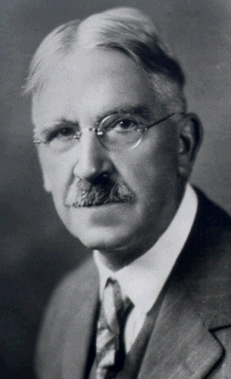
John Dewey
John Dewey was an American Psychologist, Philosopher, educator, Social critic and political activist. He wrote "Conscription of thought".
America was unsure about joining the war. However, John Dewey believed America should have join the war. According to John Dewey "Men pay more for flour and beef steak whether they like it or not, and at countless social points they have to ask themselves whether they will make a sacrifice willingly from sense, of union with their fellows, or sourly, peevishly, disgruntedly, in a sense of isolation."
John Dewey was asking the Civilian population will you join the union or shy away from the war.
John Dewey do not want United States of America to be isolated.
Civilian protesting against the war
"There is probably no one in the country who was not aware that many persons among us were pro German in their sympathies; that there were others who were opposed to all war and yet others were
opposed to all war and yet others with whom this war was unpopular, and others who centered their hostility upon, the policy of conscription. Alot of people were against the war because the aftermath of any war was horrible.
Why should United States join the War ?
Soldiers getting ready to go to war
According to John Dewey " we justify our attacks and suppressions on the rational ground that Social Cohesion is a necessity and that we are simply taking measures to secure Union."
United states of America entered the war because we want to be apart of a union.
John Dewey believed that if the President do not join the war we would missed one of the greatest contribution.
According to John Dewey if " we don't join the war we shall missed the great experience of discovering the significance of American national life by seeing it reflected into the remaking of the life of the world.Without this experience we shall miss the contribution which the war has to make the creation of a United America.





